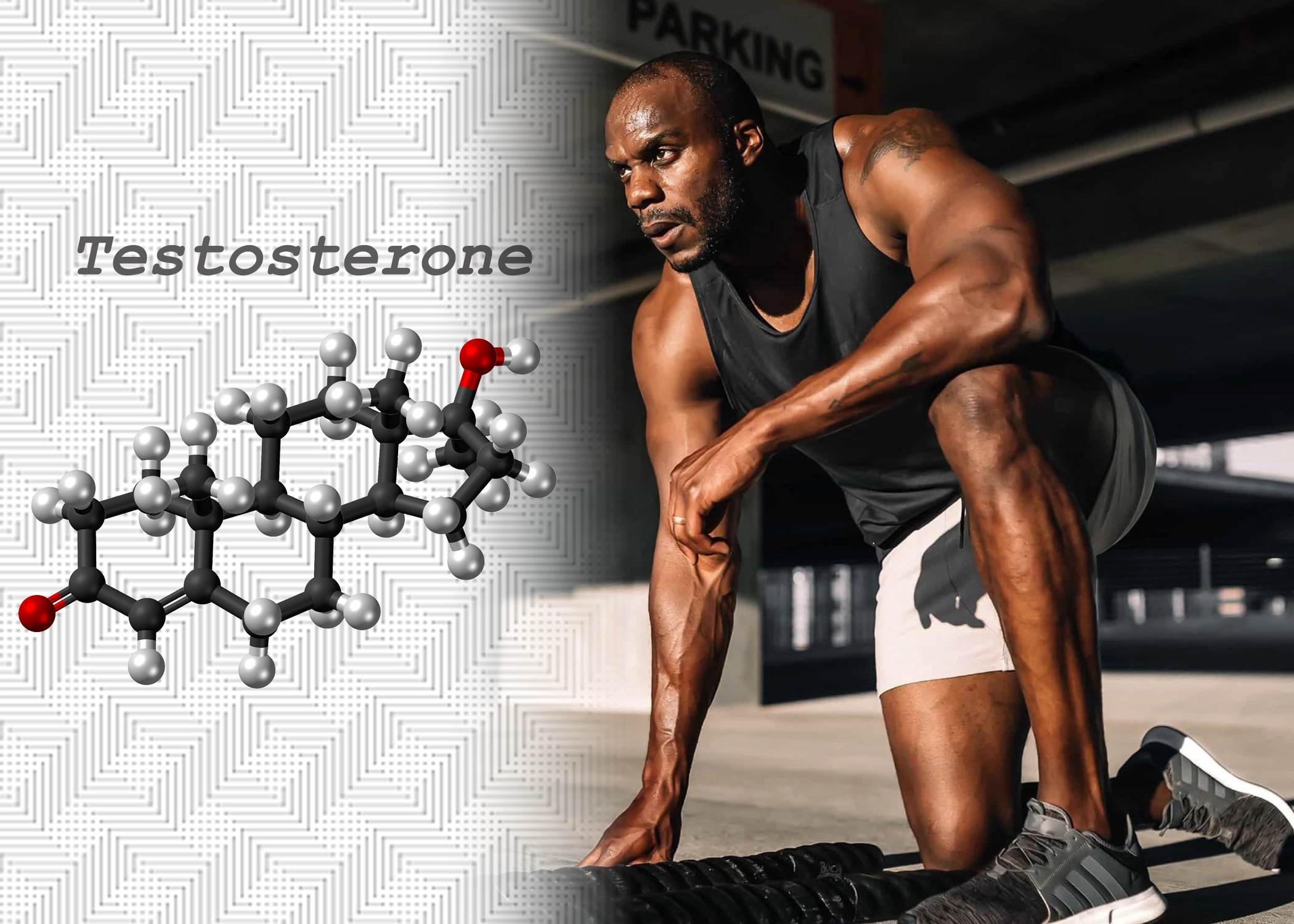
- 0 Comments
- admin
Testosterone-What Doctors Won't Tell You

Testosterone- And The Docs
First let me start off by saying your doctor doesn’t want you to know this because they typically by decree told to assess and prescribe as protocol rather than to simply look at natural remedies.
I highly recommend consulting your physician before taking any advice from anybody else but your physician primarily. You may have an underlying condition that may not be addressed in this article.
What Does Testosterone Do Exactly?
Testosterone is a hormone that plays a crucial role in the development and maintenance of male characteristics and overall health in both men and women, although it is typically present at higher levels in males. It belongs to a class of hormones known as androgens. Here are some key functions and aspects of testosterone:
Development of Male Sexual Characteristics: During fetal development, testosterone is responsible for the development of male reproductive organs, including the testes and the formation of the male genitalia. During puberty, it triggers the growth of facial and body hair, deepening of the voice, and the development of muscle mass.
Sperm Production: Testosterone is essential for the production of sperm in the testes. It maintains the health and functionality of the male reproductive system.
Libido and Sexual Function: Testosterone is closely associated with sexual desire (libido) in both men and women. It also plays a role in erectile function and sexual satisfaction.
Muscle and Bone Health: Testosterone is an anabolic hormone, meaning it helps build and maintain muscle mass and bone density. It contributes to overall strength and physical performance.
Red Blood Cell Production: Testosterone stimulates the production of red blood cells in the bone marrow, which helps maintain healthy blood oxygen levels.
Mood and Cognitive Function: Testosterone can influence mood, cognitive function, and energy levels. Low testosterone levels have been linked to symptoms of depression, fatigue, and poor concentration.
Metabolism and Fat Distribution: Testosterone can impact metabolism and fat distribution in the body. Low levels of testosterone may contribute to increased body fat and reduced muscle mass.
Cardiovascular Health: Some research suggests that testosterone may have a protective effect on cardiovascular health by helping to regulate blood pressure and lipid profiles. However, this area of study is complex and ongoing.
Testosterone levels naturally decline with age, typically beginning in the late 20s or early 30s. Low testosterone levels can lead to a range of symptoms, including reduced libido, fatigue, muscle weakness, and mood changes. In some cases, low testosterone can be a result of medical conditions or medications and may require treatment.
It’s important to note that while testosterone is commonly associated with male characteristics, it is also present in females at lower levels and plays a role in their health and well-being. Any concerns about testosterone levels, whether too high or too low, should be discussed with a healthcare professional who can provide appropriate evaluation and guidance.

What Are Testosterone Killers?
Several factors can contribute to a decrease in testosterone levels, and it’s often a combination of these factors rather than a single “biggest killer.” Testosterone levels can be influenced by various lifestyle choices, medical conditions, and age-related changes. Some common factors that can negatively impact testosterone levels include:
Aging: Natural age-related decline in testosterone levels is a common factor. Testosterone levels tend to peak in late adolescence and early adulthood and gradually decline with age.
Obesity: Excess body fat, particularly abdominal fat, is associated with lower testosterone levels. Obesity can lead to hormonal imbalances and insulin resistance, which can negatively affect testosterone production.
Sedentary Lifestyle: Lack of physical activity and exercise can contribute to lower testosterone levels. Regular exercise, especially resistance training and high-intensity interval training, can help maintain or increase testosterone levels.
Poor Diet: Inadequate nutrition, including deficiencies in key nutrients like zinc and vitamin D, can negatively impact testosterone production. A diet high in processed foods and sugars may also contribute to hormonal imbalances.
Chronic Stress: Chronic stress can lead to elevated cortisol levels, which can disrupt the hormonal balance in the body, including testosterone production.
Alcohol and Substance Abuse: Excessive alcohol consumption and the use of certain drugs or substances can negatively affect hormone production and function.
Medications and Medical Conditions: Some medications and medical conditions can lead to decreased testosterone levels as a side effect. These may include opioids, corticosteroids, chemotherapy, and certain chronic illnesses.
Sleep Deprivation: Inadequate sleep or poor sleep quality can disrupt the body’s hormonal balance, including testosterone production. Aim for 7-9 hours of quality sleep per night.
Environmental Toxins: Exposure to certain environmental toxins and endocrine-disrupting chemicals, such as phthalates and bisphenol A (BPA), may interfere with hormone function.
Testicular Injury or Disease: Physical trauma to the testicles or certain medical conditions, like testicular cancer, can directly affect testosterone production.
It’s important to recognize that while these factors can contribute to lower testosterone levels, not all individuals will experience the same effects, and some people may have a genetic predisposition that makes them more or less susceptible to these influences.
If you suspect you have low testosterone or are experiencing symptoms like fatigue, reduced libido, or mood changes, it’s advisable to consult with a healthcare professional. They can assess your hormone levels and provide guidance on lifestyle changes, medications, or therapies to address any underlying issues.

How Can Testosterone Production Increase?
Improving testosterone levels naturally involves adopting a holistic approach that includes lifestyle changes and habits. Here are some of the best ways to support and optimize testosterone levels:
Maintain a Healthy Diet:
- Consume a balanced diet rich in whole foods, including lean proteins, fruits, vegetables, whole grains, and healthy fats.
- Ensure you’re getting enough zinc, vitamin D, and omega-3 fatty acids, as these nutrients are important for testosterone production.
Exercise Regularly:
- Engage in both aerobic exercise and strength training. Resistance training, such as weightlifting, is particularly effective at increasing testosterone levels.
- Aim for at least 150 minutes of moderate-intensity aerobic exercise or 75 minutes of vigorous-intensity aerobic exercise per week, as recommended by health guidelines.
Manage Stress:
- Practice stress-reduction techniques like mindfulness meditation, yoga, deep breathing exercises, or progressive muscle relaxation.
- Chronic stress can elevate cortisol levels, which can negatively affect testosterone production.
Get Adequate Sleep:
- Prioritize quality sleep by aiming for 7-9 hours of restorative sleep each night.
- Ensure a consistent sleep schedule and create a sleep-friendly environment.
Maintain a Healthy Weight:
- If overweight or obese, losing excess body fat can help increase testosterone levels.
- Focus on a balanced diet and regular exercise to achieve and maintain a healthy weight.
Limit Alcohol and Caffeine:
- Excessive alcohol consumption and caffeine intake can disrupt hormone balance. Moderation is key.
Stay Hydrated:
- Dehydration can negatively affect hormone function. Drink plenty of water throughout the day.
Avoid Endocrine Disruptors:
- Reduce exposure to environmental toxins and endocrine-disrupting chemicals found in some plastics, pesticides, and personal care products.
Healthy Fats and Cholesterol:
- Include sources of healthy fats like avocados, nuts, seeds, and olive oil in your diet.
- Cholesterol is a precursor to testosterone, so don’t excessively restrict dietary cholesterol.
Limit Sugar and Processed Foods:
- Excessive sugar intake and processed foods can contribute to insulin resistance, which can negatively impact testosterone levels.
Intermittent Fasting:
- Some studies suggest that intermittent fasting may have a positive impact on hormone levels, including testosterone. Consult with a healthcare professional before starting any fasting regimen.
Manage Medications and Medical Conditions:
- Consult with your healthcare provider about any medications that may affect testosterone levels.
- Address any underlying medical conditions that could be contributing to low testosterone.
Supplements and Herbs:
- Some natural supplements and herbs like ashwagandha, fenugreek, and maca may have a modest impact on testosterone levels. Consult with a healthcare professional before using supplements.
Consult a Healthcare Professional:
- If you suspect you have low testosterone or are experiencing symptoms like fatigue, low libido, or mood changes, consult with a healthcare professional for proper evaluation and guidance.
It’s important to remember that lifestyle changes may take time to yield noticeable results, and individual responses can vary. If you have concerns about your testosterone levels or are considering significant changes to your lifestyle, it’s advisable to seek guidance from a healthcare provider who can provide personalized recommendations based on your unique needs and circumstances.
Conclusion:
Although many factors may affect what production levels we may have at the moment, not all depend upon age specifically. Lifestyle, diet, exercise levels, and proper supplementation play major roles in your testosterone levels. Keep in mind, a blood test can generally be taken to help you gauge your testosterone.
One major thing to keep in mind is to monitor your blood pressure when taking any supplements that are intended to help increase testosterone, as many supplements can and often do affect your heart rate and blood pressure. As I stated before, always check with your physician to see if there are any other underlying issues causing low T.

